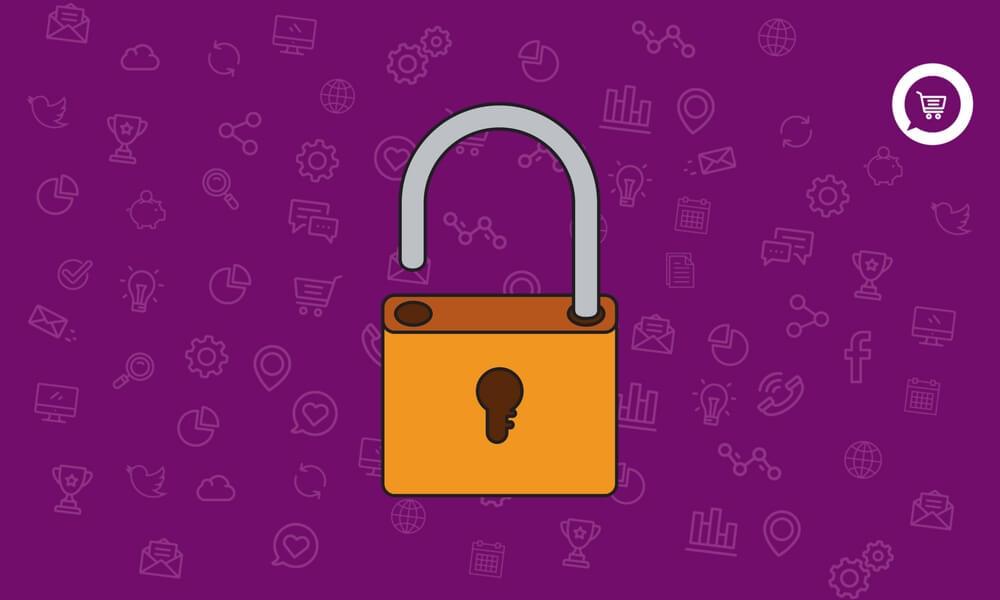Online fraud is an inevitable part of running an e-commerce business, especially nowadays, as we can see a constant growth of online sales. When hackers have all sensitive data in their hands, it can cause a number of negative repercussions. How can you fight it?
The thing is that cybercriminals are getting more sophisticated with their attacks. They are stealing sensitive information from e-commerce sites, such as credit card details and use it across the Internet causing damage for both consumers and online businesses.
The October 2017 Global Fraud Index report states that total fraud increased by 5,5% from Q2 2016 to Q2 2017, and the value of potential fraud was $57.8 billion. According to ThreatMetrics, European online businesses had to face 80 million fraud attempts in Q1 2018, based on 1.9 billion digital transaction analyzes. The figures are impressive and scary at the same time, so having a coherent security architecture is critical for online business ventures.
Here’s how you can protect your business and customers’ sensitive data.
Take the appropriate steps
There’s a lot you can do to minimize the risk and you can start with choosing a secure e-commerce platform and a hosting provider that performs regular backups and monitors the network. Make sure that servers are regularly monitored for malware and potential attacks.
Also, ask your customers for setting up strong passwords when they create an account in your store. You can, for instance, suggest a minimum number of characters and require using symbols or numbers.
Another thing that helps companies keep their data safe is layering the security. It’s not only about the payments but it’s also good to add extra security to the login boxes, contact forms and other elements that are data sensitive.
Moreover, it’s important to use a secure connection with strong SSL authentication and to make sure that you are PCI compliant. If you don’t want to worry about how to meet PCI requirements, work with a PCI-compliant payment platform and let them take the burden on themselves and take care of the data. As an online merchant, you shouldn’t store sensitive data yourself, especially when you’re not PCI compliant. Think about it this way: You won’t be robbed if there’s nothing to steal.
However, keep in mind that PCI DSS provides security standards but it doesn’t mention any specific tools or solutions for protecting e-commerce transactions. This is why online stores need extra security solutions that protect eventual vulnerable weak points that cybercriminals may use during their attacks.
Payment gateway with built-in security systems
Large e-commerce platforms usually have security features built-in, while smaller ones need 3rd party solutions to help. Ideally, you can find a payment gateway provider that delivers strong, anti-fraud solutions and manages all the processes, so the users’ data doesn’t even touch your server.
Look for solutions that offer real-time fraud scoring and come with dynamic filters based on AI or machine learning. You can also run further manual checks if you’re not sure about the score.
However, keep in mind that basic machine learning solutions can be inaccurate and don’t provide businesses with the speed they need, as they slowly adapt to new fraud patterns. Nowadays, e-commerce needs filters that adjust to specific business models and traffic, and this is what advanced payment platforms, such as SecurionPay, have to offer.
“We’re providing machine learning and AI-based tools that allow the system for a quick reaction that can handle more complex fraud attempts. The time is worth its weight in gold, so we do everything in our power to speed up the process and always stay ahead of fraudsters. This is why we currently work also on video verification,” says SecurionPay CEO Lucas Jankowiak.
SecurionPay also delivers a non-invasive 3D Secure authentication developed by their team to reduce the number of chargebacks without interfering with the conversion. Fraud detection and customer experience should come hand in hand, otherwise one of these things will suffer. There’s no question that customer convenience, especially in e-commerce, is a top priority.

“We all know that 3D Secure is considered a conversion killer, so when we gave our clients the smart authentication, it became one of their most favourable solutions that supports their ongoing security practices,” adds Jankowiak.
Good payment platform also comes with tokenization, which is another solution for reducing risk, as customers’ payment information is replaced with random numbers and characters that are useless for attackers. Did you know that there are bots that can guess the CVV for a stolen credit card number? This shouldn’t be surprising, as many fraudsters have a credit card number, but not the physical card.
What can also help, especially on e-commerce websites is an Address Verification System that automatically compares the customer’s billing address with the credit card issuer information. This method helps to spot fraudulent attempts and recognize legitimate transactions, and note that it’s also delivered by good payment solutions.
So, choose a payment provider wisely and seek solutions with the right tools and processes in place that will give you several different security layers. The good news is that both payment system and anti-fraud tools work simultaneously, so when something suspicious occurs, you can react immediately.
Keep your e-commerce site secure
Security has become a major responsibility for online businesses, therefore I recommend that you monitor your site on a regular basis and patch your system immediately. Choose your hosting and payment provider carefully, make sure your site is backed up, and keep an eye on your website for any suspicious behaviour to make it less exposed to potential attacks.
Take the time to minimize any damage. As an e-commerce owner, you should understand that experts’ knowledge is a no-brainer when it comes to spotting anomalies and identifying fraud faster. If you take your eye off the ball, customers may lose trust in your business, and it will be hard to convince them to get back to your store in the future.
You can also think about organizing security training for your employees to let them know what they should focus on, in order to protect your customer’s data. They shouldn’t reveal any sensitive data during online communication with customers, especially during chat sessions. Furthermore, they should be trained on the actions they should make when something suspicious occurs. Prevention is better than a cure.





